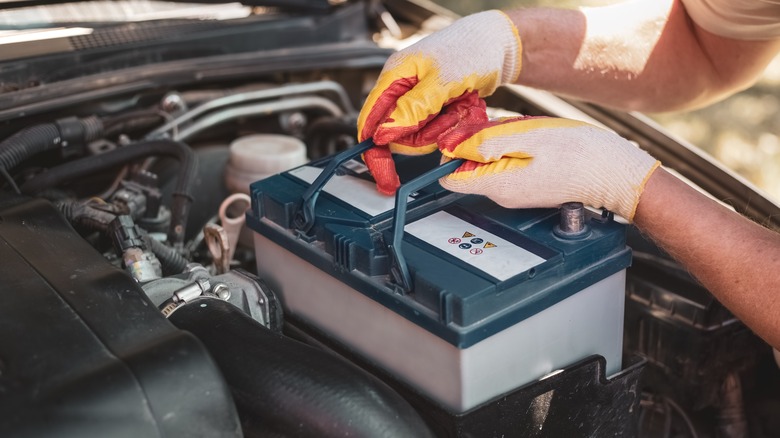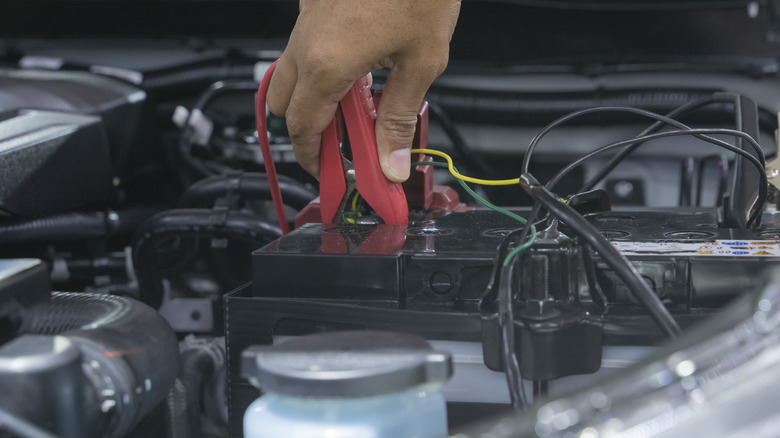What Does Ah Stand For On A Car Battery?
There are loads of car battery brands on the market these days, and while car batteries aren't necessarily universal, it's still possible to get an idea of whether or not one will "fit" your car before a purchase is made.
Of course this industry standardization (at least as far as metrics and units of measurement go) means that there are a few different numbers you need to look at when shopping for a new power source. Attached to those numbers are a lot of words and abbreviations that may seem a little confusing. Stuff like "Date Code," "Group Size," "CCA," "RC," and "Ah."
The base-level meaning of "Ah" (at times it might appear as "C20" instead) as it pertains to batteries is "amp-hours" (and "amp" is short for "ampere"). So, much like those other letter combinations, it's essentially shorthand for a unit of measurement for performance — in this particular case, continuous energy output. It's also a rough guide to how long the battery should last before needing to be recharged.
Ah-ha!
More specifically, it's an indicator of roughly how long a given battery can maintain an output of at least 10.5 volts while in 80-degree temperatures for 20 hours at a stretch. In most cases, smaller cars use batteries around 40 Ah, mid-sized and larger closer to 50 Ah, and very big vehicles typically use 75 Ah.
Ah ratings and a battery's performance aren't necessarily uniform across the board, however. Different vehicles may use slightly more or slightly less power — electrical elements like lights, the radio, plugged in smart devices, and so on also impact power consumption — which can affect how long a given battery will last.
Of course, car batteries tend to last much longer (roughly three to four years on average) than 20-plus hours and don't require replacing all that often, unless there's some kind of mechanical or electrical problem, anyway. This is because the car's alternator converts and transfers power from the engine into the battery as you drive. Which is also why it's recommended to drive your car every so often, even if you don't really need to go anywhere. Keeping your car parked (and unused) for too long is a common reason for a car battery dying.

